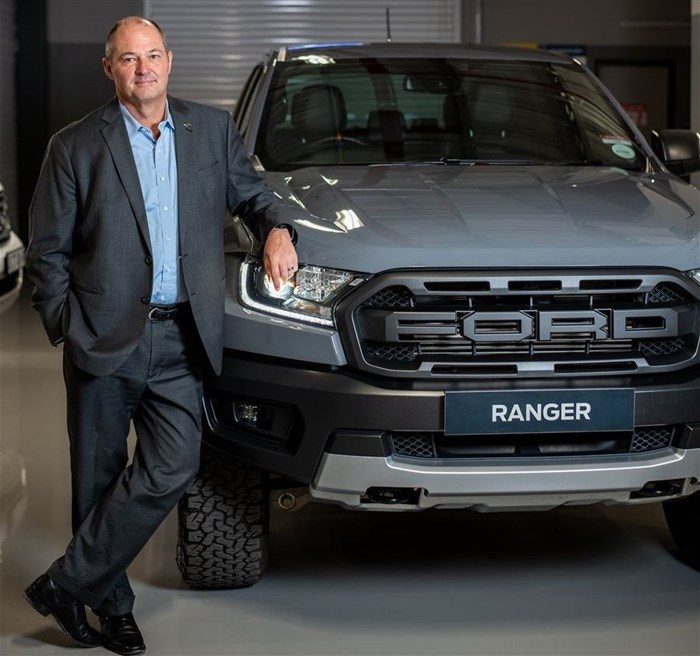
That's correct, FMC invested $1bn (R15.8 billion) in its South African manufacturing operations. That’s the biggest investment in Ford’s 97-year history in this country. It also represents one of the largest-ever investments in the South African automotive industry, boosting Ford’s production capability and creating new jobs.
This investment will further modernise our South African operations, helping them to play an even more important role in the turnaround and growth of our global automotive operations.
With this investment, Ford will modernise and grow the Ford Silverton Assembly Plant to support expanded production of the all-new Ranger bakkie, starting in 2022.
The Ford Ranger is one of the company’s highest-volume, most successful global vehicles. This investment will equip our team with the tools and facilities to deliver the best Ford Ranger ever, in higher numbers and with superior quality.
The annual installed capacity at the Silverton plant will increase to 200,000 vehicles from 168,000, supporting the production of the Ranger for the domestic market and export to over 100 global markets.
Yes, Ford will hire an additional 1,200 team members to support expanded production, bringing its workforce in South Africa to 5,500 employees. The investment will also create an estimated 10,000 new jobs across Ford’s local supplier network.
Yes, as part of our extensive investment in the Silverton plant, we’re also building a new Ford-owned and operated chassis line in the Tshwane Automotive Special Economic Zone (TASEZ) for this new vehicle programme.
That’s key to expanding our production capacity, as parts will be sequenced directly onto the assembly line. It will significantly reduce logistics costs and complexity, improve efficiency and allow us to build more Rangers for our customers.
In addition to its representation on the TASEZ board, Ford also is working closely with all three spheres of government and relevant state-owned entities such as Transnet in developing the Gauteng Province – Eastern Cape Province High Capacity Rail Freight Corridor. This will be a full-service line linking the Silverton Assembly Plant and the TASEZ with Port Elizabeth, which is home to Ford’s Struandale Engine Plant and the Coega Special Economic Zone.
“Mr President, I am delighted to announce that we are investing $1.05-billion (R15.8-billion), in our South African operations as we define an exciting new era for Ford in South Africa.” Andrea Cavallaro - Director Operations, Ford IMG #TshwaneAutoSEZ #InvestSA pic.twitter.com/SlDEljZMuT
— Ford South Africa (@FordSouthAfrica) February 2, 2021
Ford also will invest R5.5bn to upgrade tooling our major supplier factories. Supporting our suppliers with this new tooling will ensure we modernise together to deliver world-class quality for the all-new Ranger at higher volumes for our domestic and import customers.
It’s been positive, we’re quite impressed. Our private-public partnership with all three spheres of government in the Tshwane Automotive Special Economic Zone (TASEZ) is a crucial step toward unleashing the new production capacity.
Energy is too crucial a component of the economy to be allowed to fail, so Eskom and a reliable power supply will get sorted out. But we’re also working on our own solutions.
Our goal by 2024 is to have the Silverton plant completely energy self-sufficient and 100% carbon neutral, using an integrated renewable and co-generation energy mix comprising solar PV, biomass, biogas and bio-syngas for all our electricity, gas and heating requirements.
We will also be introducing 100% water recycling, and all non-fermentable waste will be repurposed through a pyrolysis system to produce syngas.
Last month Ford donated R2.5m to the National Institute for Occupational Health to help bolster its Covid-19 surveillance system.
Dhiren Vanmali, Executive Director of Government Affairs, Ford International Emerging Markets Group; takes the stage to make the special announcement of our partnership with the @HealthZA and the National Institute for Occupational Health (@NIOH_SA). #FordMediaBreakfast pic.twitter.com/OeZzGn3u9C
— Ford South Africa (@FordSouthAfrica) March 16, 2021
Listen to the full interview below:
